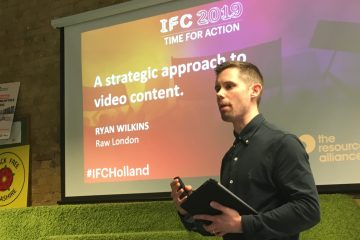We really should…
The Dutch fundraising landscape has changed a lot over the past few years. For decades fundraising was an activity exclusively of charities, charitable organisations that are formed for charitable purposes. But these traditional charities encounter totally different parties on the fundraising field: non-profit organisations not being charities; let’s call them non-traditional fundraising organisations, from musea to universities, from orchestras to sportsclubs, from hospitals to schools.
Fundraising departments of traditional charities differ a lot from fundraising departments in non-traditional fundraising organisations. Usually charities have specialised staff for specific fundraising programmes (DM, TM, Legacies, Events etc.), while the newcomers have all-round fundraisers on board to kick-off their fundraising programmes, most of them being pioneers in environments where fundraising is not part of the core-business of the organisation. It is interesting to see the speed of this trend, the amount of organisations entering the Dutch fundraising arena and the way professionals deal with this trend.
Most fundraising departments in non-traditional fundraising organisations have been set up for economic reasons. A withdrawing government announcing economic cutbacks is the best reason for boards to hire fundraising staff. Once the fundraising department (usually starting off with one person) is a fact, people in the organisation ‘go back to work’ and strongly believe that the fundraising department will soon bring in the big bucks. Paradoxically, fundraising is similar to soccer in the Netherlands: everyone is an expert!
Everyone knows how to raise funds and everyone is willing to share their views with you. Within my organisation, a comprehensive cancer institute, I have a lot of –as I call it- ‘we really should’-conversations. ‘We really should ’ being synonym for ‘YOU really should’. And I am sure in many other non-traditional fundraising organisations fundraisers have exactly the same kind of conversations with their professionals. Professionals whose daily work is to do cancer research and to treat cancer patients (or to teach, or to play music, or to win sport games, or to put together interesting exhibitions and so on).‘We really should get money from corporates’, ‘we really should go online’, ‘we really should organise a gala’…
I actually like people coming up to me for ‘we really should’-conversations. I consider it as an opportunity to talk to them, to tell them about the techniques but more important about the dynamics of fundraising and to teach them on fundraising. I take their hand to show them the importance of friendraising. This simple little case is for many ‘we really should’ -people in my organisation a helpful eye-opener. This is what I tell them:
 “Imagine you will move to another new –and let’s hope- bigger and nicer appartment next weekend. You need help to get your stuff from the old place to the new place: someone to drive the van, a couple of people to carry boxes and furniture and someone to help you to rebuild those bloody bookshelves from the Swedish store everyone buys bookshelves from. Now, why don’t you go to the shopping mall around the corner at lunch time and actually stop people and ask them to help you out. I seriously wouldn’t say that you will not succeed, but I suppose you agree it will be hard to convince total strangers to help you out in the weekend. Now, what happens if you are having a drink in the bar with a couple of friends and you tell them about your new place and that you will be moving next week. Right! THEY will OFFER to help you.”
“Imagine you will move to another new –and let’s hope- bigger and nicer appartment next weekend. You need help to get your stuff from the old place to the new place: someone to drive the van, a couple of people to carry boxes and furniture and someone to help you to rebuild those bloody bookshelves from the Swedish store everyone buys bookshelves from. Now, why don’t you go to the shopping mall around the corner at lunch time and actually stop people and ask them to help you out. I seriously wouldn’t say that you will not succeed, but I suppose you agree it will be hard to convince total strangers to help you out in the weekend. Now, what happens if you are having a drink in the bar with a couple of friends and you tell them about your new place and that you will be moving next week. Right! THEY will OFFER to help you.”
P.S: My intention is to blog on specific ‘we really should’ topics. Let me know how you deal with ‘we really should’ issues.

1 Comment
AZ-305 · July 12, 2024 at 11:58
It is the best effort to fundraise for landscape